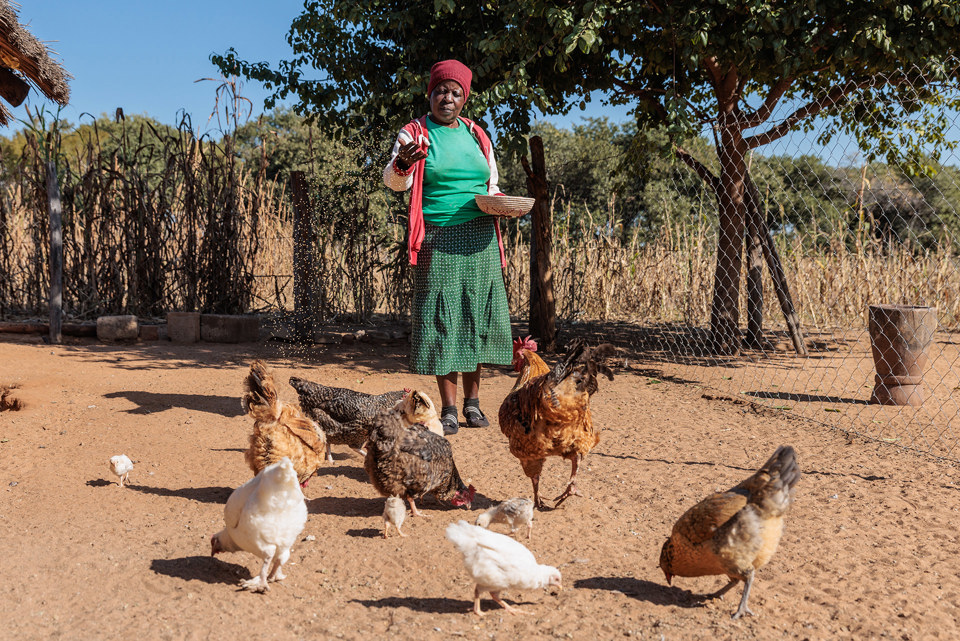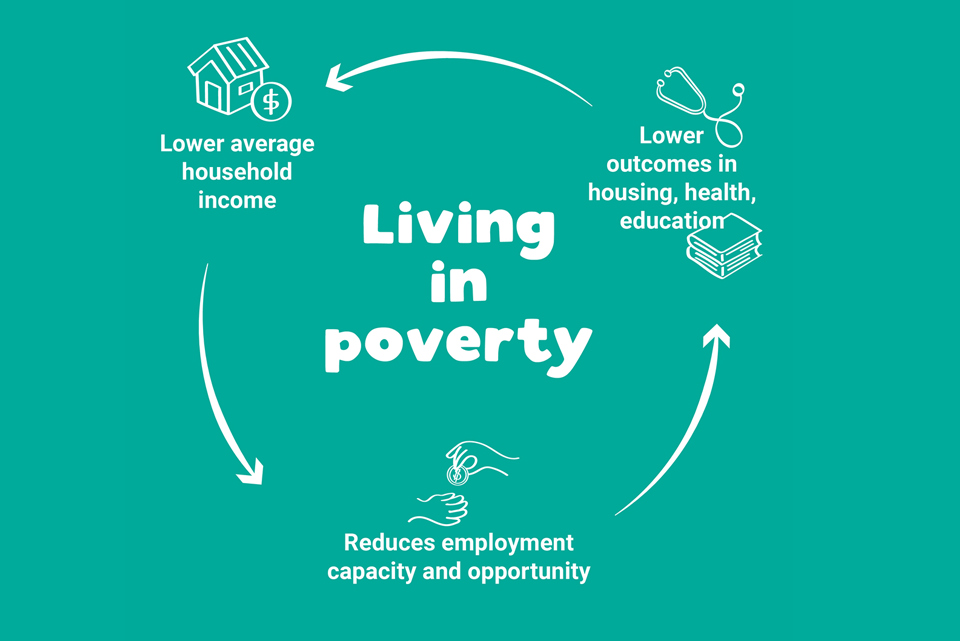Extreme drought is leading to a food crisis in Zimbabwe
Climate change is bringing unprecedented challenges for remote farming communities in Zimbabwe.

Priscilla inspects her drought affected fields of millet next to her home in Hwange district, north western Zimbabwe. Photo: Richard Wainwright/Caritas Australia
Challenges for rural communities in Zimbabwe

Priscilla inspects her drought-affected fields of millet next to her home in Hwange district, north-western Zimbabwe. Photo: Richard Wainwright/Caritas Australia
Persistent droughts
Extreme droughts have destroyed crops that many families rely on for survival. Without water, livestock are also at risk of dying.

Priscilla holding a bowl of sorghum. Photo: Caritas Australia.
Widespread poverty
More than half of Zimbabwe's population live below the poverty line, with the overwhelming majority (90%) of them living in rural areas.

Priscilla's husband Charles fills water storage drums at their home in Hwange district, north western Zimbabwe. Photo: Richard Wainwright/Caritas Australia
Lack of clean water
Water scarcity is an issue that affects many people in Zimbabwe. According to the District Development Fund (Hwange), only 68% of households in Hwange have access to clean and safe water.
Global poverty is rising, and the world is now at a critical tipping point.
Priscilla, 59, lives with her husband Charles, and their two grandchildren Obry, 8, and Jayden, 7, in the Hwange region of Zimbabwe. They are farmers who have been battling an intense drought for nearly five years that have caused them to lose both their livestock and income.
“Our biggest challenge as a family is mainly food,” Priscilla said. “Life is very difficult.”
The weather, with its unpredictable rainfall, prolonged dry spells, high temperatures, and poor soil, meant that the crops that Priscilla planted kept failing. Rain-fed agriculture is no longer a reliable form of farming and severe mid-season dry spells are a common feature of the agricultural season.
We need to act now to help resilient and hardworking people like Priscilla and her family rise up against poverty.

Priscilla, her husband Charles and their grandsons Obry (8) and Jayden (7) outside their home in Hwange district, north western Zimbabwe. Photo: Richard Wainwright/Caritas Australia

Priscilla feeding her chickens. Photo Richard Wainwright/Caritas Australia
Millions are facing food shortages in Zimbabwe
Once known as the ‘breadbasket of Africa’, Zimbabwe today struggles with hyperinflation, widespread poverty and political instability:
- Chronic malnutrition caused by widespread food shortages, a failing health system and high rates of HIV infection mean that the average life expectancy in Zimbabwe is just 61 years.
- These challenges have been worsened by the economic instability of the country and the emergence of the COVID-19 pandemic. The country is experiencing high inflation, with prices of commodities increasing more frequently.
- Many community members cannot afford to purchase basic commodities or to pay school fees for their children.
- The war in Ukraine has also further affected the price of food and commodities in Zimbabwe.
“It was stressful because we didn't know what to give our children because there was nothing to give them.”

The Cycle of Poverty
The causes of poverty are complex and interlinked. Historical circumstances, like conflict and wars, can create poverty, but even during adverse world events, certain groups are more likely to face challenges than others.
Vulnerable communities and families trapped in the cycle of poverty have few to no resources to help them develop their livelihoods.
Those born in vulnerable communities often have less access to healthcare, housing, education and employment. The cycle will often continue from generation to generation until assistance can be given to them to forge a path out of poverty.













